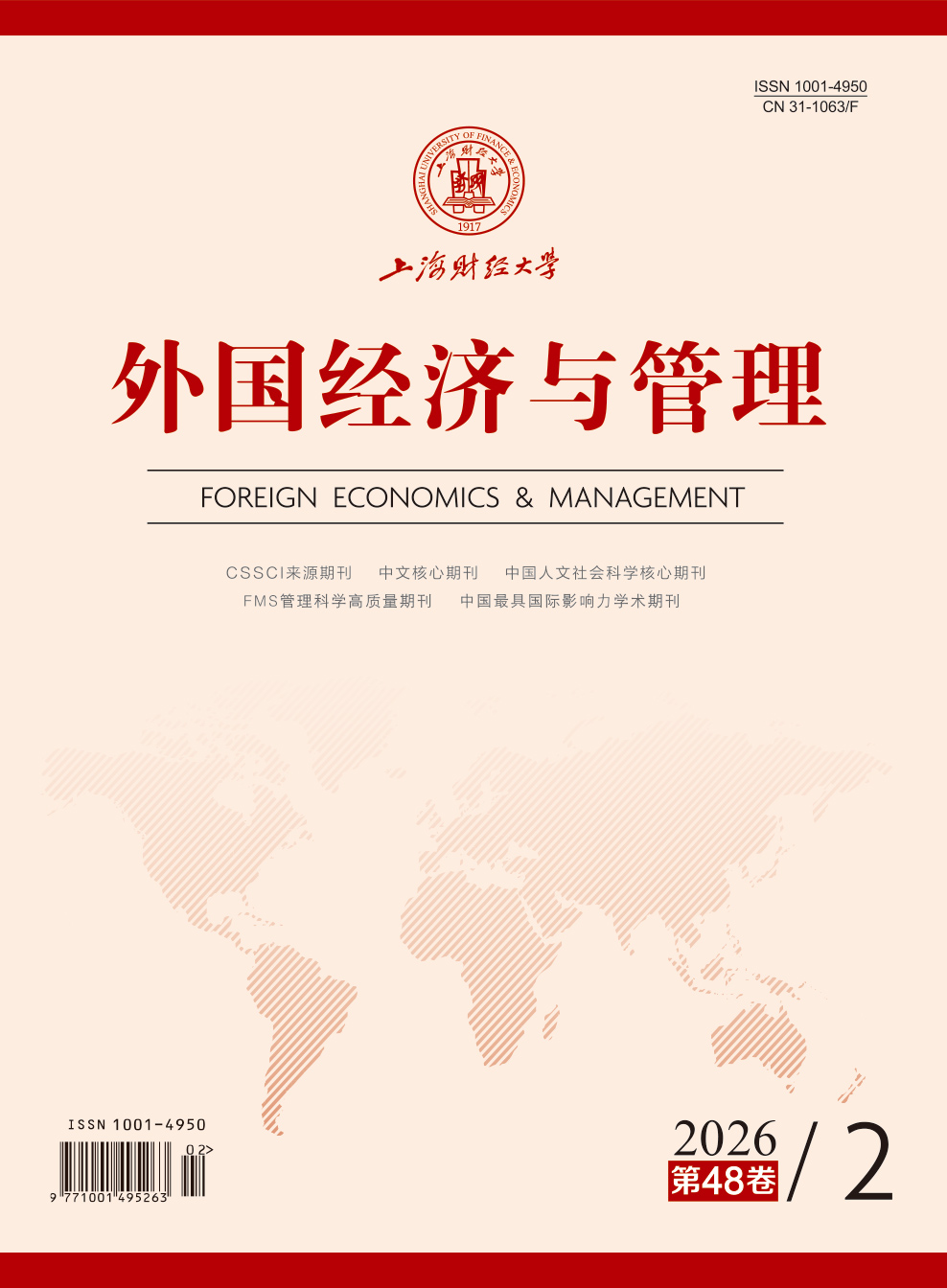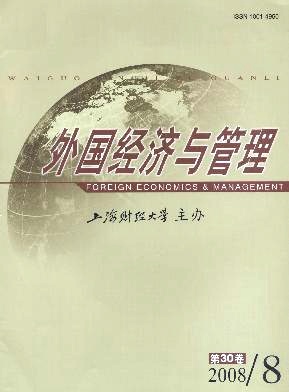基于行为动力特征的组织内信任主动启动与发展问题探析
外国经济与管理 2008 年 第 30 卷第 08 期, 页码:23 - 30
摘要
参考文献
摘要
本文从行为动力特征的视角出发,探讨了影响组织内信任发展的主动性因素。文章首先提出了基于行为动力特征的组织内人际信任主动启动与发展模型;然后以此为分析框架详细阐述了互动双方可用来促进信任主动启动与发展的可信行为及人际风险知觉管理策略,以及影响信任主动启动与发展的个体心理因素与组织背景因素;最后指出了组织内信任主动启动与发展研究的管理实践意义和未来研究方向。
[1]Malhotra,D,and Murnighan,J K.The effects of contracts on interpersonal trust[J].Administrative Science Quarterly,2002,47(3):534-559.
[2]韦慧民,龙立荣.组织中人际初始信任研究述评[J].心理科学进展,2008,16(2):328-334.
[3]Child,J,and Mollering,G.Contextual confidence and active trust development in the Chinese business environment[J].Organiza-tion Science,2003,14(1):69-71.
[4]Williams,M.Building genuine trust through interpersonal emotion management:A threat regulation model of trust and collaborationacross boundaries[J].Academy of Management Review,2007,32(2):595-621.
[5]Whitener,E M,Brodt,S E,Korsgaard,M A,and Werner,J M.Managers as initiators of trust:An exchange relationship frame-work for understanding managerial trustworthy behavior[J].Academy of Management Review,1998,23(3):513-530.
[6]Kramer,R M.Trust and distrust in organizations:Emerging perspectives,enduring questions[J].Annual Review of Psychology,1999,50(1):569-598.
[7]Schoorman,F D,Mayer,R C,and Davis,J H.An integrative model of organizational trust:Past,present and future[J].Academyof Management Review,2007,32(2):344-354.
[8]Lewicki,R J,Edward,C T,and Nicole,G.Models of interpersonal trust development:Theoretical approaches,empirical evidenceand future directions[J].Journal of Management,2006,32(6):991-1 022.
[9]Robinson,S L.Trust and breach of the psychological contract[J].Administrative Science Quarterly,1996,41(4):574-599.
[10]王飞雪,山岸俊男.信任的中、日、美比较研究[J].社会学研究,1999,2:67-82.
[11]杨中芳,彭泗清.中国人人际信任的概念化:一个人际关系的观点[J].社会学研究,1999,2:1-21.
[12]Ferrin,D L,Bligh,M C,and Kohles,J C.Can I trust you to trust me?[J].Group&Organization Management,2007,32(4):465-499.
[13]Greenberg,J.Employee theft as a reaction to underpayment inequity:The hidden cost of pay cuts[J].Journal of Applied Psycho-logy,1990,75(5):561-568.
[14]Ferrin,D L,and Dirks,K T.The use of rewards to increase and decrease trust:Mediating processes and differential effects[J].Or-ganization Science,2003,14(1):18-31.
[15]de Jong,S B,van der Vegt,G S,and Molleman,E.The relationships among asymmetry in task dependence,perceived helping be-havior,and trust[J].Journal of Applied Psychology,2007,92(6):1 625-1 637.
[16]Serva,M A,Fuller,M A,and Mayer,R C.the reciprocal nature of trust:A longitudinal study of interacting teams[J].Journal ofOrganizational Behavior,2005,26(6):625-648.
[17]Sheppard,B H,and Sherman,D M.The grammars of trust:A model and general implications[J].Academy of Management Re-view,1998,23(3):422-437.
[18]Korsgaard,M A,Brodt,S E,and Whitener,E M.Trust in the face of conflict:The role of managerial trustworthy behavior andorganizational context[J].Journal of Applied Psychology,2002,87(2):312-319.
[19]Williams,M.In whom we trust:Social group membership as an affective context for trust development[J].Academy of Manage-ment Review,2001,26(3):377-396.
[20]宝贡敏,徐碧祥.组织内部信任理论研究述评[J].外国经济与管理,2006,28(12):1-9.
[2]韦慧民,龙立荣.组织中人际初始信任研究述评[J].心理科学进展,2008,16(2):328-334.
[3]Child,J,and Mollering,G.Contextual confidence and active trust development in the Chinese business environment[J].Organiza-tion Science,2003,14(1):69-71.
[4]Williams,M.Building genuine trust through interpersonal emotion management:A threat regulation model of trust and collaborationacross boundaries[J].Academy of Management Review,2007,32(2):595-621.
[5]Whitener,E M,Brodt,S E,Korsgaard,M A,and Werner,J M.Managers as initiators of trust:An exchange relationship frame-work for understanding managerial trustworthy behavior[J].Academy of Management Review,1998,23(3):513-530.
[6]Kramer,R M.Trust and distrust in organizations:Emerging perspectives,enduring questions[J].Annual Review of Psychology,1999,50(1):569-598.
[7]Schoorman,F D,Mayer,R C,and Davis,J H.An integrative model of organizational trust:Past,present and future[J].Academyof Management Review,2007,32(2):344-354.
[8]Lewicki,R J,Edward,C T,and Nicole,G.Models of interpersonal trust development:Theoretical approaches,empirical evidenceand future directions[J].Journal of Management,2006,32(6):991-1 022.
[9]Robinson,S L.Trust and breach of the psychological contract[J].Administrative Science Quarterly,1996,41(4):574-599.
[10]王飞雪,山岸俊男.信任的中、日、美比较研究[J].社会学研究,1999,2:67-82.
[11]杨中芳,彭泗清.中国人人际信任的概念化:一个人际关系的观点[J].社会学研究,1999,2:1-21.
[12]Ferrin,D L,Bligh,M C,and Kohles,J C.Can I trust you to trust me?[J].Group&Organization Management,2007,32(4):465-499.
[13]Greenberg,J.Employee theft as a reaction to underpayment inequity:The hidden cost of pay cuts[J].Journal of Applied Psycho-logy,1990,75(5):561-568.
[14]Ferrin,D L,and Dirks,K T.The use of rewards to increase and decrease trust:Mediating processes and differential effects[J].Or-ganization Science,2003,14(1):18-31.
[15]de Jong,S B,van der Vegt,G S,and Molleman,E.The relationships among asymmetry in task dependence,perceived helping be-havior,and trust[J].Journal of Applied Psychology,2007,92(6):1 625-1 637.
[16]Serva,M A,Fuller,M A,and Mayer,R C.the reciprocal nature of trust:A longitudinal study of interacting teams[J].Journal ofOrganizational Behavior,2005,26(6):625-648.
[17]Sheppard,B H,and Sherman,D M.The grammars of trust:A model and general implications[J].Academy of Management Re-view,1998,23(3):422-437.
[18]Korsgaard,M A,Brodt,S E,and Whitener,E M.Trust in the face of conflict:The role of managerial trustworthy behavior andorganizational context[J].Journal of Applied Psychology,2002,87(2):312-319.
[19]Williams,M.In whom we trust:Social group membership as an affective context for trust development[J].Academy of Manage-ment Review,2001,26(3):377-396.
[20]宝贡敏,徐碧祥.组织内部信任理论研究述评[J].外国经济与管理,2006,28(12):1-9.
引用本文
韦慧民, 龙立荣. 基于行为动力特征的组织内信任主动启动与发展问题探析[J]. 外国经济与管理, 2008, 30(8): 23–30.
导出参考文献,格式为:
上一篇:论组织理论范式的转换





 7335
7335  510
510

